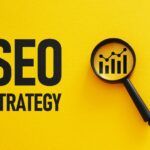
Will an H1 tag automatically guarantee the top spot in search engine results? The simple answer is no. An H1 tag alone won’t automatically rank first in SEO. However, it’s a vital part of a broader SEO strategy. Let’s explore the importance of H1 tags and their role in the larger SEO landscape, using SEO tools available to further enhance your strategy.
The True Purpose of H1 Tags
H1 tags serve several key functions on your web pages. They provide structure and hierarchy to your web content. They also help visitors quickly grasp the page’s subject matter.
H1 tags signal the main topic to search engines like Google. These search engines leverage H1 tags, along with other on-page SEO elements, to assess page relevance. Google recommends using only one H1 tag per page to clearly indicate the main heading, enhancing the user experience and improving SEO.
Interestingly, Google’s John Mueller has clarified that multiple H1 tags don’t directly penalize a page. While not ideal for user experience, it doesn’t directly impact SEO. This insight is valuable for those participating in the SEO forum or utilizing platforms like Moz Pro, Moz Local, or exploring free SEO tools.
How H1 Tags Impact SEO
While not a magic bullet for top rankings, the H1 heading tag does contribute to your overall SEO efforts in several key ways. Understanding these aspects can significantly improve SEO and contribute to the trillion links across the web.
Improved User Experience
A clear H1 tag instantly clarifies the page’s topic for visitors. This enhances user experience, a crucial SEO factor. When users quickly find what they need, they’re more likely to stay engaged, which indirectly impacts your SEO rankings.
Accessibility
H1 tags are critical for screen reader users to navigate web content effectively. Heading tags are essential for accessibility, particularly for the visually impaired. This makes it simpler for visually impaired users to understand page structure and the header tag’s importance. Using free SEO tools, like those offered by Moz, can ensure your site remains accessible and caters to a wider audience.
Keyword Relevance
Naturally including target keywords in your H1 tag reinforces the page’s topic to search engines. Avoid keyword stuffing, as this practice can negatively impact your SEO practices. Remember, keyword optimization should be natural and benefit the reader, ultimately contributing to your page’s discoverability in search queries and across the trillion links that exist.
Content Structure
H1 tags, along with other HTML heading tags, create a logical content structure. This hierarchy clarifies content organization for both users and search engines, contributing to better user experience and SEO metrics. Consider utilizing Moz Academy resources or participating in the SEO forum for insights on how header tags contribute to on-page SEO and your website’s ranking among the trillion links.
Best Practices for Using H1 Tags
Follow these practices for effective H1 tags:
- Use only one H1 tag per page.
- Make your H1 descriptive and relevant to the page content.
- Include your target keyword naturally, if possible.
- Keep it concise (under 60 characters).
- Ensure your H1 aligns with search intent.
- Make it engaging.
Aligning H1 Tags with Title Tags
H1 and title tags should be closely related, though not necessarily identical. Google advises aligning these to ensure accurate search results. Consistency reinforces the page’s topic and can improve click-through rates from search engine results pages (SERPs). Discuss title tags and H1 alignment strategies in the SEO forum for diverse perspectives from SEO experts.
The Bigger SEO Picture
H1 tags are just one part of a larger SEO strategy. Numerous factors influence your search engine ranking. Considering both on-page and off-page SEO factors, along with leveraging insights from SEO experts, is crucial for success. Utilize free SEO tools like those provided by Moz to audit and optimize your SEO process and improve user experience. Remember to understand the content of each page.
| On-Page Factors | Off-Page Factors |
|---|---|
| Quality content. Keyword optimization. Meta tags. Internal linking. Page speed. | Backlinks. Social signals. Brand mentions. User engagement. Domain authority. |
The Impact of Search Intent
Search intent is crucial for SEO. Google has become adept at understanding user search queries. Even with a perfectly optimized H1, your page won’t rank well if it doesn’t match the user’s intent.
For instance, a page selling cake mix, even with a keyword-rich H1, won’t rank high for “how to bake a cake.” This emphasizes the importance of grasping your audience’s needs. Creating valuable content is a cornerstone of SEO best practices, along with technical elements like proper heading tag usage.
Your H1 should accurately reflect search intent. It should signal the information users will find, ultimately improving SEO and driving relevant traffic from the trillion links active across the web. Utilize SEO tools to track and analyze how search intent aligns with user behavior and adjust your SEO tactics accordingly.
Measuring the Impact of Your H1 Tags
H1 tags can improve SEO performance. Monitor these metrics:
- Click-through rate (CTR) from search results
- Time on page
- Bounce rate
- Overall organic traffic
Tools like Google Search Console and Google Analytics track these metrics. Improvements after H1 optimization suggest a positive impact. This data provides valuable insight into how on-page SEO elements like header tags contribute to a webpage’s visibility within the vast expanse of the internet, estimated at trillion links. This knowledge is particularly relevant to those engaged in the SEO community, utilizing platforms such as Moz or participating in SEO forums.
Conclusion
So, does an H1 tag automatically guarantee the top spot in search engine results? The answer is no. But H1 tags are essential. They improve structure, user experience, and signal relevance to search engines.
H1 tags, as part of a comprehensive SEO strategy, contribute to better rankings. When used correctly, header tags aid both search engines and screen readers, enhancing accessibility and user experience for all. They are crucial elements of on-page SEO, contributing to how content is structured and understood by both users and search engines.
SEO is about more than just H1 tags. It involves crafting valuable, relevant content. By focusing on quality content, effective H1 use, and leveraging insights from resources like Moz Academy and the SEO forum, you’ll improve your SEO rankings within the vast digital marketing landscape. You can hire a SEO agency to help if you are confused on how it all works.












